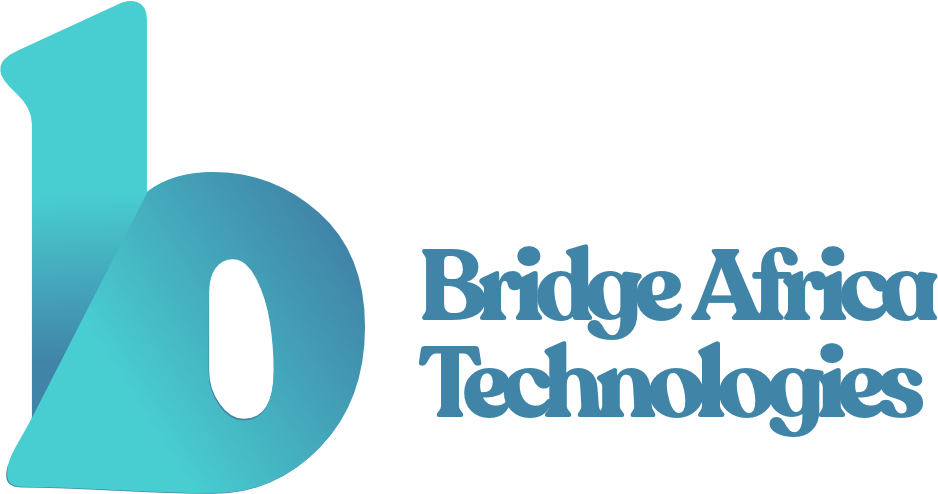Haven’t you ever wished you could physically hold your published book in your hands, feel the weight of your ideas, and creativity in print? Indeed, there is no greater pleasure than sharing stories, knowledge, and experiences with other people for a writer.
But these may sound like big tasks and too intimidatingly hopeless to the ever-increasing number of would-be authors in Nigeria. Undeniably, publishing a book may be daunting; it really need not be so with the right guidance.
In this post, we will show you the step-by-step guide on how to publish a book in Nigeria and make your journey to becoming a published author smooth and enjoyable.
Whether you are interested in traditional publishing or self-publishing, this article will make for good reading for valuable insights into book publishing in Nigeria.
Table of Contents
Why Should You Get Your Book Published?
You should get your book published because that book idea must leave you to help, educate, entertain or bless others. I believe that’s a simple and straightforward reason why you should get your book published. Other reasons are:
- To publicize your brand
- To make money
- For posterity sake
- For passive income
- To share your experience with others
Also Read – How to Sell on Amazon From Nigeria in 2025
What are the Different Types of Book Publishing in Nigeria?
Before you begin your publishing journey, it is important to understand the various types of book publishing in Nigeria. Up until recently, book publishing has been considered as two categories: self-publishing and traditional publishing. Well, we now have three book publishing types in effective use worldwide that you need to familiarize yourself with, and they include;
- Traditional Publishing: This is where a publisher accepts a manuscript for editing, printing, and distribution; in return, the author gets royalties from sales. In Nigeria, they include University Press PLC and Book Craft Africa.
- Self-publishing: Authors are in control of their own publication process without recourse to traditional publishers. They maintain full rights and profits derived but bear all costs. Self-publishing is one of the commonest in Nigeria due to flexibility.
- Hybrid Publishing: Combines traditional with self-publishing, whereby a company provides such services as editing and distribution but authors may contribute financially to this process.
Read Also – How to Monetize Instagram in Nigeria: 8 Best Strategies
How to Publish a Book in Nigeria
Publishing a book in Nigeria is rather easier than what many people fathom, especially if the following steps are put into consideration.
Step 1: Writing and Editing Your Manuscript
Writing the manuscript will be the first step in publishing anything in Nigeria. That’s where you’ll have to come up with clear, concise, and captivating content that will create an impact on the minds of readers. Take all the time researching, writing, and editing your manuscript until you feel ready with the final product.
Step 2: Publishing Route
After finishing the manuscript, you come to decide on the route of publishing. There are three options here: traditional publishing, self-publishing, and hybrid publishing. You’ll deal directly with the publishing house in traditional publishing because they cover the editing, printing, and selling themselves. In this case of self-publishing, you have to deal with all the cost and process of how to get the book printed and sold yourself. Hybrid publishing has a balancing between these two approaches- traditional and self-publishing approaches.
Step 3: Prepare for Publishing
Once you settle on the publishing mode, have your manuscript ready for publishing, meaning it’s also not only going to be formatted but also styled towards a particular publisher or as such required by the publishers in the case of self-publishing. Editing your manuscript, error checking at the proof, and formatting appropriately will avoid rejection or wasting much-needed time waiting to get your manuscript published.
Step 4: The Nigerian Copyright Commission-NCC
Safeguard your intellectual property by registering the book with the Nigerian Copyright Commission. This is done by submitting a duly completed application form, two copies of the book, and a fee of ₦10,000. The NCC registration gives legal protection to the work and serves as a measure of piracy deterrent.
Step 5: Get an ISBN
An ISBN is an International Standard Book Number, a unique identifier of your book. Purchase an ISBN from the Nigerian ISBN Agency or other authorized resellers. The ISBN makes your book identifiable and traceable to readers, booksellers, and libraries.
Step 6: Design Your Book Cover
A book cover is a thing that impresses every reader’s aesthetic sensitivity first of all. Design the cover per your publisher requirements or per requirements of self-publishing. Your cover should look catchy and include information related to a book title, author’s name, and tagline.
Step 7: Print or Distribute Your Book
If self-publishing, arrange printing and distribution. You may utilize print-on-demand services or local printers. In traditional publishing, the publisher would handle printing and distribution. See that your book is available in major bookstores, online platforms, and other channels of distribution.
Step 8: Marketing and Promotion of Your Book
Finally, create a marketing plan: Utilize media-book signings, reviews, and all other possible promotion venues to get the targeted audience. Network the authors, book clubs, literary organizations-do whatsoever it takes in order to let people know and sell.
Also Read – How to Start an Online Business in Nigeria with Little or No Money
How Much Does it Cost to Publish a Book in Nigeria
Prices vary on which publishing route is taken, the format of the book, and other services the publisher may want to invest in. Conventional publishing has an estimated cost between ₦0 and ₦500,000, self-publishing costs between ₦50,000 and ₦500,000, while hybrid publishing will cost between ₦100,000 and ₦1,000,000.
E-book publishing costs between ₦10,000 and ₦50,000, paperback costs between ₦50,000 and ₦200,000, while a hardcover would cost between ₦100,000 and ₦500,000.
Other costs include editing, which costs between ₦20,000 and ₦100,000; cover design, costing between ₦10,000 and ₦50,000; and printing and distribution.
Generally, publishing a book in Nigeria could cost around ₦50,000 and ₦1,500,000 or more.
Also Read – How to Make Money on Social Media in Nigeria in 2025
What are the Common Mistakes to Avoid When Publishing a Book in Nigeria?
There are certain common mistakes one should avoid while publishing a book in Nigeria:
- Not editing or proofreading your manuscript: Not editing or proofreading your manuscript is setting yourself up for one riddled with mistakes, inconsistencies, and poor quality writing that may just discredit your good name as an author and affect your book’s sales.
- Poor Book Cover: Bad book cover design actually turns people off from buying. A cover needs to be professional in design, relevant to your content, and appeal to a targeted audience.
- Failure to Register on NCC: Failure to have your book registered in the NCC, it would be at the mercy of pirates and thieves of copyright. It will be legally protected from others since its use will also be deterred by the owner himself.
- Failure to get ISBN: This is a serious problem, since this makes tracing and ordering copies difficult. Get your ISBN from the Nigerian ISBN Agency or its other accredited agents.
- Poor marketing and promotion: this is the failure to work out how your books will reach their targeted readers. In simple terms, this means that the sale of such books will be extremely poor. Social networks, book signings, reviews, or anything else might help in propagating your books with success.
- Not Selling Your Book Effectively: Poor distribution of your book means that it will only be available to a few people, and so the sales would also be minimal. Make sure your book is present in the major bookstores among other channels of distribution.
- The author platform is not built: This makes it difficult to help a book with visibility and credibility. Build an online presence through social media, websites, or blogs; that’s where your readers will find and get to know you and your work.
If you can avoid these very common mistakes, then you are assured of a successful publishing experience in Nigeria.
Frequently Asked Questions
What do I need to publish a book in Nigeria?
You will need a well-written and edited manuscript, an ISBN, registration with the Nigerian Copyright Commission, and then you will choose which publishing route you want: traditional, self-publishing, or hybrid publishing.
How can I choose a publishing route in Nigeria?
The route to publication would, therefore, depend on your goals, budget, and preferences. In traditional publishing, professional editing, printing, and distribution services are carried out by the publisher, while you will have to share royalties. In self-publishing, you enjoy creative control, but you bear all the costs and processes yourself. Hybrid publishing is a mixture of both.
How do I get an ISBN in Nigeria?
You can get an ISBN in Nigeria from the Nigerian ISBN Agency or other approved dealers. The ISBN is an identity number given to your book to help anyone locate and probably buy it.
Can I self-publish an ebook in Nigeria?
Well, yes, you can publish an ebook in Nigeria. Publishing ebooks is relatively cheaper and more easily distributed to readers. You can make your ebook sell on online platforms like OkadaBooks, Amazon Kindle, and any other ebook retailer.
Conclusion
Congratulations! You have read to the end of our well-detailed guide on how to publish a book in Nigeria.
Publishing a book may seem like one stressful activity, but with good guidance, it is achievable and easy; actually, patience, persistence, and dedication are all it takes to publish a book in Nigeria.
By following the steps above as highlighted in this guide, you will be on the right track to the successful publication of your book. Now, stop waiting and go out there and share your story with the rest of the world!

